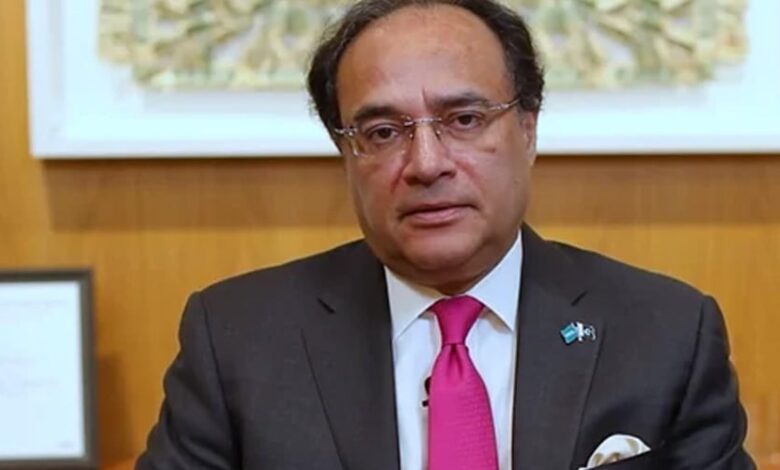FinMin Aurangzeb minimises the economic effects of the conflict between India and Pakistan.

Muhammad Aurangzeb, the federal finance minister, has minimised the economic consequences of the recent escalation with India, calling it “minor” and doable given the nation’s current financial situation.
The finance minister told the British news agency Reuters that Pakistan’s economy is still strong in spite of the military tensions along the Line of Control (LoC), which increased after the attack in Pahalgam, Indian-occupied Kashmir, on April 22 that claimed 26 lives. Without offering any proof, India had accused Pakistan of causing the disaster, a charge that Islamabad vehemently denied.
“The skirmish has had little financial impact. Mr. Aurangzeb stated, “It can be absorbed within the fiscal space available,” and that the government is still dedicated to addressing its defence requirements without compromising economic priorities.
He called such speculation “premature,” though, and declined to comment on a possible increase in defence spending in the next budget.
Pakistan launched “Operation Bunyan-un-Marsus” on May 10 in reaction to Indian aggression, which was the culmination of ongoing military tensions. According to reports, the operation targeted an S-400 missile defence installation, a Brahmos missile storage facility, and important Indian airbases including Pathankot and Adampur. According to military sources, Pakistan’s forces also downed five Indian aircraft and struck multiple brigade-level headquarters along the LoC.
Shortly after the operation, US President Donald Trump mediated a ceasefire agreement between the two neighbours that possess nuclear weapons. Mr. Trump reaffirmed Washington’s willingness to support both sides in preserving peace and cited commerce as a key driver of the de-escalation.
Mr. Aurangzeb voiced hope for bilateral trade negotiations with Washington and praised the US president’s mediation efforts. He stated that Pakistan is contemplating purchasing premium cotton, soybeans, hydrocarbons, and other commodities from the United States, adding, “We are hopeful that trade discussions with the United States will conclude soon.”
The finance minister also discussed water diplomacy, emphasising the need for India to reinstate the Indus Waters Treaty, which it had terminated on its own initiative. “You shouldn’t use water as a weapon. “Our agricultural and economic foundation is the Indus River,” he stated.
Budget and IMF tranche discussions
A $1 billion tranche under the International Monetary Fund’s (IMF) $7 billion rescue package was approved on May 9th, the finance minister revealed. According to him, the money should reach Islamabad by Tuesday. In addition, a new $1.4 billion loan to strengthen Pakistan’s climate resilience has been approved by the IMF’s executive board.
Mr Aurangzeb further stated that Pakistan’s federal budget for the next fiscal year, starting in July, will be finalised in the next three to four weeks. He stated that the dates of the budget talks with the IMF are set for May 14–23.
Due to a $3 billion trade surplus, Pakistan is currently subject to a 29% tax on exports to the US. However, the tariff’s implementation was suspended for 90 days in April, providing a temporary reprieve to exporters.
Tensions between India and Pakistan
Muhammad Aurangzeb, Pakistani environmentalist